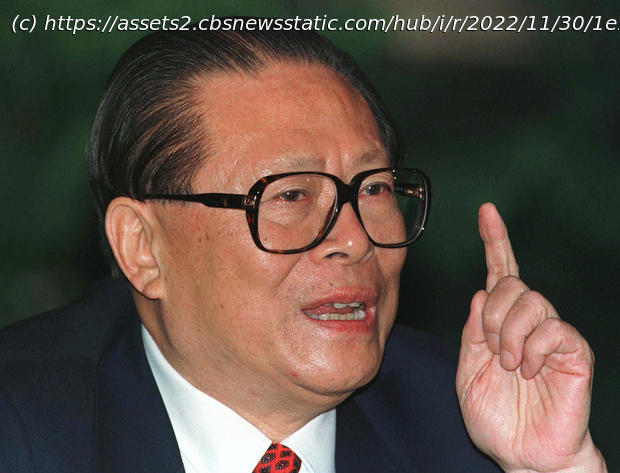Jiang led his country out of isolation after the Tiananmen Square crackdown, backing economic reform that ushered a decade of explosive growth.
Initially seen as a transitional leader, Jiang was drafted on the verge of retirement with a mandate from then-paramount leader Deng Xiaoping to pull together the party and nation.
But he proved transformative. In 13 years as Communist Party general secretary, the top position in China, he guided China’s rise to global economic power by welcoming capitalists into the Communist Party and pulling in foreign investment after China joined the WTO.
He presided over the nation’s rise as a global manufacturer, the return of Hong Kong and Macao from Britain and Portugal and the achievement of a long-cherished dream: winning the competition to host the Olympic Games after an earlier rejection.
A former soap factory manager, Jiang capped his career with the communist era’s first orderly succession, handing over his post as party leader in 2002 to Hu Jintao, who assumed the presidency the following year.
Jiang tried to hold onto influence by staying on as chairman of the Central Military Commission, which controls the party’s military wing, the 2.3 million-member People’s Liberation Army. He gave up that post in 2004 following complaints he might divide the government.
Even after he left office, Jiang had influence over promotions through his network of proteges.
He was said to be frustrated that Deng had picked Hu as the next leader, blocking Jiang from installing his own successor. But Jiang was considered successful in elevating allies to the party’s seven-member Standing Committee, China’s inner circle of power, when Xi became leader in 2012.
Portly and owlish in oversize glasses, Jiang was an ebullient figure who played the piano and enjoyed singing, in contrast to his more reserved successors, Hu and Xi.
He spoke enthusiastic if halting English and would recite the Gettysburg Address for foreign visitors. On a visit to Britain, he tried to coax Queen Elizabeth II into singing karaoke.
“Jiang had faded from public sight and last appeared publicly alongside current and former leaders atop Beijing’s Tiananmen gate at a 2019 military parade celebrating the party’s 70th anniversary in power. He was absent from a major party congress last month where former leaders are given seats in recognition of their service.






